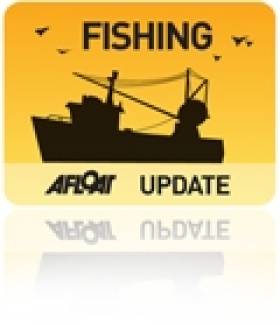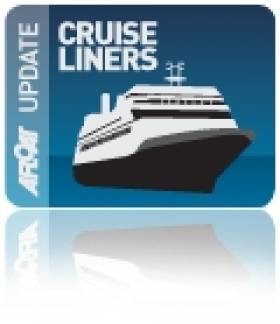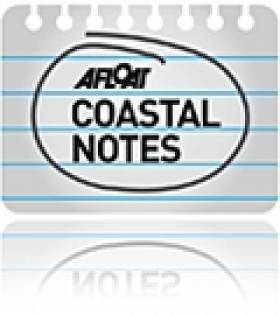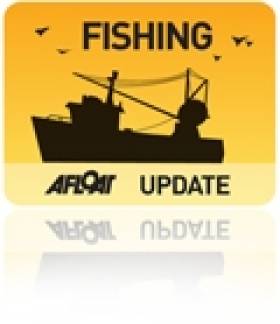Displaying items by tag: Faroe Islands
Faroe Islands Dolphin Hunt to be Limited to 500 This Year and Next After Public Outcry
The Faroe Islands has announced it will limit its controversial dolphin unit to 500 for this year and next, as RTÉ News reports.
The decision comes after a Faroese governmental review prompted by a petition calling for a ban on the bloody hunt tradition that garnered 1.3 million signatures.
Almost 1,500 white-sided dolphins were killed in last year’s hunt, which employs a method known as “grindadráp” whereby boats surround cetaceans in a semi-circle to drive them into shallows where they are then beached and slaughtered with knives.
The traditional hunt has wide support in the Faroes, part of the Kingdom of Denmark and some 320km north of the Scottish mainland, where dolphins and pilot whales have fed communities for generations. Local leaders emphasised that the annual catch is “important supplement to the livelihoods of Faroe Islanders”.
RTÉ News has more on the story HERE.
‘Existential Threat’ to Ireland’s Blue Whiting Fishery Posed by Faroe Islands Deal With Russia: KFO
Killybegs fishers have lashed out at a deal between the Faroe Islands and Moscow that they say creates a “loophole” for Russian trawlers to muscle in on the blue whiting fishery around Irish waters.
According to The Irish Times, the Killybegs Fishermen’s Organisation (KFO) has called on the Government and European Commission to impose sanctions on the North Atlantic island country over the “immoral” deal that poses “an existential threat to the catch of blue whiting in Irish waters”.
The organisation’s chief executive also accused the Faroes of “aiding and abetting” the Russian invasion of Ukraine by way of the deal, which allows its own vessels to fish for cod in Russian waters.
The Irish Times has much more on the story HERE.
Coveney Blasts Iceland's 'Irresponsible' Mackerel Quota
#Fishing - Mackerel quotas will be the focus of discussions among European fisheries ministers in Brussels today as Ireland seeks a reduction of Iceland's share.
As RTÉ News reports, Marine Minister Simon Coveney will seek "strong and decisive action" against Iceland and the Faroe Islands unless the European Commission reports progress in talks over the realignment of mackerel catch limits.
Iceland's quota for mackerel increased from 2,000 tonnes in 2009 to a whopping 146,000 tonnes just two years later as stocks of the staple fish soared - partly due to migration from more southerly European waters.
But Minister Coveney has blasted Iceland's move as "irresponsible and unacceptable fishing".
The talks come in the wake of fruitful reform of the Common Fisheries Policy led by the minister as president of the EU Fisheries Council during Ireland's EU Presidency in the first half of this year.
Floating City Hotel to Mark Start of Islands Cruise
Passengers embarking in Dublin Port for a cruise next month will firstly spend their first night onboard while docked in the capital, writes Jehan Ashmore.
The classic cruiseship Saga Ruby will welcome her passengers and after checking in they can explore the 4-star rated vessel followed by dinner, marking the first evening of an eight-night cruise of the Faroe, Orkney & Outer Hebridean Islands.
On the following day passengers can remain onboard and enjoy the facilities or take an optional tour of Dublin or Wicklow prior to returning to the cruiseship for the evening departure on 24 July.
Prices start from €1,159pp in a twin inside cabin, for more information on other cabin categories and the cruise from John Galligan Travel click here.
Saga Ruby is one of the last traditionally built cruiseships, featuring spacious wooden decks in particularly on the tiered decks overlooking her cruiser stern. The 24,492 tonnes vessel joined Saga Cruises in 2005 after a $17m refit and was at one stage was the Caronia of Cunard Line, but she started her career as Vistafjord for Norwegian America Line as a combined cruise-liner /cruise-ship when built in 1973. To read more about the classic ship click here.
She can take over 600 passengers and is currently operated by the Saga Cruises which caters primarily for the UK over-50's market noting passengers can be accompanied by adults over 40.
St Brendan Voyagers Refused Access to Skellig
The crew of sailors, artists, musicians and historians on board Ar Seachrán - who are retracing the famous voyage of St Brendan - were refused permission to land on Skellig Michael, it has emerged.
The Kerryman reports that though some visitors are understood to have landed on the island in recent weeks, the OPW refused the Brendan's Voyage crew on health and safety grounds.
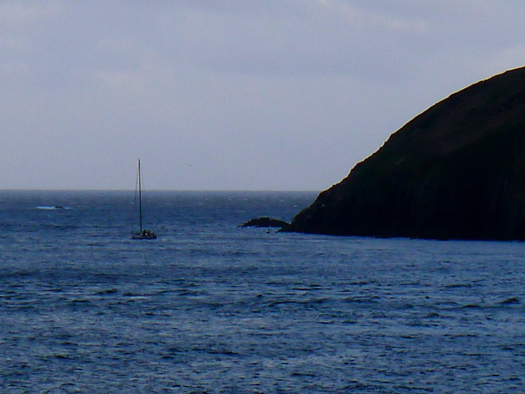
A spokesperson for the OPW said it requires at least 10 days notice to make preparations for any visitors and repair damage to pathways and buildings occurring over the winter months.
Dr Breandán Ó Ciobhán of the voyage party described the news as "very disappointing".
Ar Seachrán, a 45ft yacht owned by Paddy Barry - himself a veteran of unique ocean voyages - will continue on its journey up the west coast of Ireland and Scotland, by the Orkneys, Shetlands and Faroe Islands to Iceland.
Connick Leads Criticism of 'Unsustainable' Mackerel Fishing by Iceland and Faeroes
Minister Connick said "I want to see a fair deal to resolve this issue and secure the future for our fishermen and fish factories. However, I made it clear that I will not accept a deal at any price."
Currently Iceland and the Faroe Islands are acting unilaterally and outside of normal fishery management protocols and their actions pose a serious threat to the well being of the mackerel stock which economically, is Ireland's most important stock. The item was placed on today's agenda in advance of the intensive negotiations on mackerel management due to commence in October and as a follow up to the June Council where Ireland lead the debate.
Minister Connick reiterated his dismay at the continuing irresponsible fishing by Iceland and the Faroes on the mackerel stock, and his desire to see a resolution to the situation. So far in 2010, Iceland has caught about 115,000 tonnes which is more than 25 times their catch four years ago. In the case of the Faroes, their 85,000 tonnes is more than 3 times their catch in 2006. Ireland's quota in 2010 is 62,000 tonnes.
The Minister said "Ireland has consistently supported the need to reach an international agreement on mackerel management. However we can only accept an agreement that is fair and proportionate. We consider that the current fishing levels by Iceland and the Faroes are totally unjustified and that any eventual agreement must involve much reduced levels of fishing by these countries. We must robustly put our case and minimise the final cost to our fishermen."
The long term stability of the lucrative mackerel stock is of paramount importance to Ireland and in urging for increased intensification of efforts to reach a solution the Minister advised the Council that "It is my opinion that a joint approach with Norway, considering our long term agreement with them, would have added weight and would be more likely to succeed".
Minister Connick said, "I was heartened by the widespread support of my EU colleagues for the concerns that I first raised on this issue at the June Council".
There will be intensive negotiations over the autumn and the Minister committed that Ireland would work closely with other Member States and the Commission to consider all options to make progress and find a basis for a long term agreement. The Minister emphasised the critical importance of securing fair and equitable arrangements at international level that will deliver a sustainable mackerel fishery for the Irish fleet and ensure the continued prosperity of the seafood processing sector in coastal communities.


























